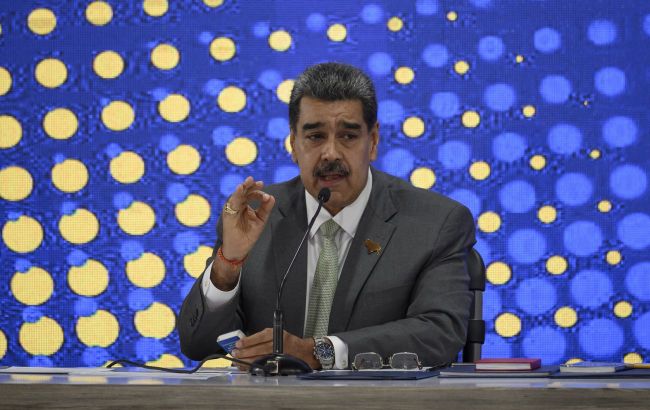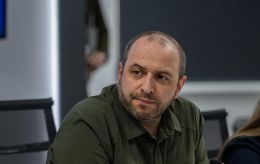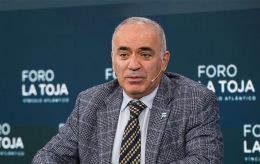Venezuelan election results: Maduro declared winner contrary to exit polls
 Venezuelan President Nicolás Maduro (Photo: (Getty Images)
Venezuelan President Nicolás Maduro (Photo: (Getty Images)
Venezuelan President Nicolás Maduro and his opposition rival Edmundo González have both claimed victory in the presidential elections following the July 28 vote, which was marked by manipulation and isolated incidents of violence, according to Reuters.
usThe country's electoral body announced shortly after midnight that Maduro had been re-elected for a third term, winning 51% of the vote, despite numerous exit polls indicating a victory for the opposition candidate.
The authorities stated that the opposition candidate González received 44% of the vote, although the opposition had earlier declared they had "reasons to celebrate" and asked supporters to continue monitoring the vote count.
Appearing at the presidential palace before triumphant supporters, Maduro claimed that his re-election was a triumph of peace and stability, reiterating his pre-election assertion that Venezuela's electoral system is transparent. He added that he would sign a decree to hold a "great national dialogue."
Fireworks erupted over Caracas, and illuminated drones formed a bright, colorful image of Maduro in the sky above the presidential palace.
Exit poll data
Opposition leader María Corina Machado stated that González had received 70% of the vote and that numerous independent exit polls and quick counts demonstrated his victory.
"Venezuela has a new president-elect and it is Edmundo Gonzalez. We won, and the whole world knows it," she said in a joint statement with González.
González stated that he did not call on his supporters to take to the streets or engage in any acts of violence.
According to a poll conducted by Edison Research, known for its election studies in the United States, the exit poll indicated that González would receive 65% of the vote while Maduro would receive 31%.
Local firm Meganalisis predicted that González would get 65% of the vote and Maduro slightly less than 14%.
US Secretary of State Antony Blinken said that the United States has "serious concerns that the result announced does not reflect the will or the votes of the Venezuelan people."
The opposition said on the evening of July 28 that senior opposition officials, who were supposed to be at the national vote count, were not allowed to be present, and opposition observers were not allowed at several polling stations.
Earlier, Machado reiterated her call for the military to support the election results. The opposition claims to have copies of about 40% of the voting protocols.
"A message for the military. The people of Venezuela have spoken: they don't want Maduro," she said. "It is time to put yourselves on the right side of history. You have a chance and it's now."
The Venezuelan armed forces have always supported Maduro, a 61-year-old former bus driver, and there were no public signs that military leaders were breaking away from the government.
Street clashes
Machado has become a star of the coalition campaign despite being banned from holding public office, forcing her to hand over the baton to González, a 74-year-old former diplomat known for his calm demeanor.
Maduro, whose re-election in 2018 is considered fraudulent by the US and others, warned last week of a "bloody massacre" if he lost.
Attorney General Tarek Saab told Reuters on Sunday evening that he did not expect any violence and that the voting went peacefully apart from a few isolated incidents.
Less than a block from Saab's office in downtown Caracas, dozens of ruling party supporters rode motorcycles to Andrés Bello High School, the largest voting center in the country, and clashed with opposition supporters gathered outside.
The crowd dispersed after about 20 minutes, but social media videos showed similar incidents elsewhere in the country.
Maduro's government has led to economic collapse, the migration of about a third of the population, and a sharp deterioration in diplomatic relations. This culminated in sanctions imposed by the United States, the European Union, and other countries that paralyzed the already struggling oil industry.
Maduro said that if he returned to power, he would ensure peace and economic growth, making Venezuela less dependent on oil revenues.
Maduro voted early in Caracas and said that the electoral authorities' results would be recognized and protected by the armed forces and police. He also announced the start of a national dialogue, which usually means negotiations between the government, the opposition, and business.
Many of Maduro's supporters enthusiastically praise his mentor, Chávez, and view Maduro, who has been in power since Chávez died in 2013, as continuing Chávez's mission of helping the poor.
González and Machado have promised significant changes and said that a new start could encourage migrants to return.
Recall that in January 2019, the National Assembly declared Juan Guaidó as the acting president of Venezuela, as Maduro was considered a usurper. Therefore, Venezuela no longer had a legitimate government.
The US, Canada, most Latin American countries, and others officially recognized Guaidó as Venezuela's interim president. Russia, Turkey, China, Cuba, and Bolivia supported Maduro.
However, subsequently, Maduro, who has been ruling the once-prosperous country since 2013 with the army's support, regained all powers.

